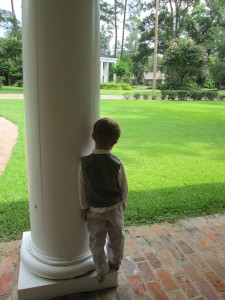A friend and I were laughing the other day about Amelia, and how she always interjects something when people are asking Hugh about his diabetes. My friend told me that Hugh was in a little class at church and they were giving him a few minutes to answer questions about Type 1 Diabetes, except the problem was he couldn’t say anything because Amelia kept answering for him. I told my friend I think half the time Amelia wants to have diabetes too, but without all the shots.
Most of the time before we eat, Amelia will ask me if I have checked Hugh’s blood sugar. “Yes, I checked it”, I tell her.
“What was it?” she asks – in a tone that is way too grown up for a toddler.
“136”, I say.
“Good” she almost always replies.
She’s three. She has no idea what the number 136 is. She can only count to 20 (on a good day).
So why do I tell her and why does she care?
Because, I realized after talking to my friend that day, diabetes is her story too. It is woven into her life just as much as it is woven into Hugh’s. She lives the blood sugar checks and insulin injections and carb counting and worrying and planning and the hundreds of other things that diabetes brings with it when it enters your home.
And I wouldn’t have it any other way.
You see, this is not just Hugh’s story to tell. It is all of ours. It is his teachers’ at school who take care of him every day. It is his grandparents’ who spoil and protect him with a ferocity that I can’t even muster. It is his friends’ who will grow up knowing a kid who had diabetes and did everything they could do. It is his dad’s and it is mine.
Maybe that is part of what Jesus meant when he said the second greatest commandment is to love your neighbor as yourself.
Maybe we can only do that when their story becomes our story.
When we walk with them through the darkness and hold their hand and don’t say anything because there are no words to even say that can bring healing. When we are just there, taking their story on as our own.
Maybe loving your neighbor as yourself looks a little bit like giving up gummies, because your brother can’t eat them.
Maybe it looks like getting your finger pricked and checking your blood sugar, even when you don’t need to.
Maybe it looks like asking what Hugh’s blood sugar number is, when you can only count to 20.

